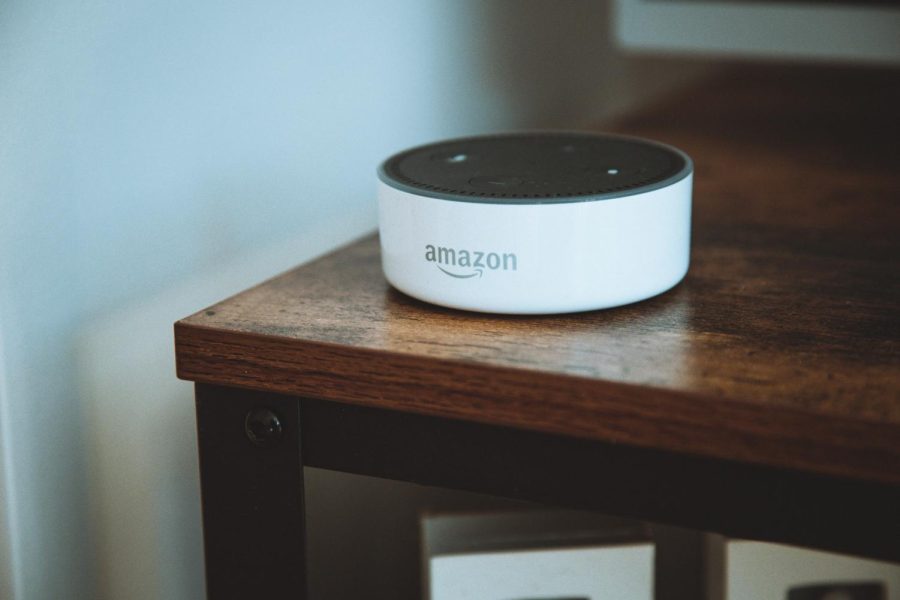So Smart it’s Scary
The presence of smart speakers in homes brings privacy concerns
Amazon Alexa has become a part of homes worldwide.
November 30, 2022
As technology has developed over time, its ability to gather information has grown exponentially. The information that used to only be available from manually imputing data with swiping on a phone or typing on a keyboard can now be collected in a monumentally different way with the introduction of smart devices such as Google Nest or Amazon Alexa. As these tools have become more and more widespread in homes worldwide, they have also gained controversy over whether the convenience of a “personal assistant” available by just saying a word is worth the potential issues in privacy the device may bring.
With the market for these smart speakers growing, users’ concerns for how information is being recorded, stored and used has grown as well. These devices are engineered to be constantly listening for their “wake” word, which tells them that the user is talking to it and requests an answer or response to the given command or statement. The presence of the digital helper constantly listening in on day-to-day conversations is enough for some to deny the device entry into their home.
Emie Cate Green (11) is an owner of an Amazon Alexa and often unplugs her device when she is not using it to mitigate privacy concerns.
“I don’t like the idea of them taking up information that I don’t want them to know at all,” Green said.
According to pocket-lint.com, the information collected by these devices is sent directly to its company to be used in various ways. While the data cannot be prevented from being sent to the company, it can be manually deleted from the company’s database by the user. The only way to truly prevent the helper from sending a user’s data to the company is to simply mute or unplug it, defeating the initial purpose of the fast and convenient assistant that is ready to help at any time.
Lillian Hanna (9) finds that the user’s ability to manually control what information of hers the company can have makes her more confident in the technology’s privacy.
“I personally do not think that smart devices are invasive because the extent that their data is used is mainly in their control,” Hanna said.
The information gained by these huge corporations such as Amazon and Google can then be sent back towards the user in the form of cookies. Cookies gather information on an internet user’s history as well as interests and common cycles and can help with bringing various suggestions. Personalized advertising is a prominent form of cookie usage from many different sources, one of which being the smart speaker. Countless users recount speaking of a product in conversation and days later seeing that same item being advertised as a suggested item for the user, making many uncomfortable with how their data is being used.
Another way that the information is used is for internal improvements on the artificial intelligence (AI) of the device itself. Keeping the recordings of users can be used to improve the AI itself in its recognition of different accents and understanding different current events. This process is done by Amazon, Google and Apple in order to construct the best AI that they possibly can even if it is at the dismay of their customers.
Louisa Lowry (11) owns an Amazon Alexa but still finds it to be invasive.
“Even when I’m not talking to my Alexa, it will sometimes turn on and recommend things to me which I do not feel comfortable with,” Lowry said.





